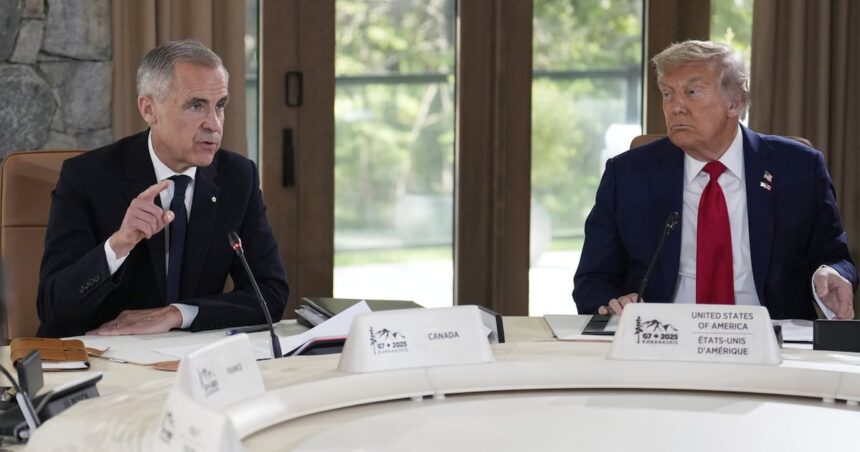In a significant setback for bilateral economic relations, negotiations between Canada and the United States over Ottawa’s controversial digital services tax have reached an impasse, threatening to escalate into a full-blown trade dispute. The stalled talks come after months of increasingly tense discussions about how tech giants should be taxed in the Canadian market.
Finance Minister Chrystia Freeland confirmed yesterday that despite intensive diplomatic efforts, the two nations have failed to find common ground on Canada’s proposed 3% tax on revenues generated by major digital service providers operating within Canadian borders. “We remain committed to ensuring digital corporations pay their fair share,” Freeland stated during a press conference in Ottawa. “However, we acknowledge the complexity of achieving this goal while maintaining our crucial trading relationship.”
The digital services tax, initially announced in Budget 2021, targets tech companies with global revenues exceeding $1 billion and Canadian revenues over $20 million. Major American corporations including Google, Amazon, and Facebook would be significantly impacted by the measure, which Washington has consistently characterized as discriminatory against U.S. businesses.
Trade experts point to the fundamental disagreement over taxation rights in the digital economy as the core obstacle. “This isn’t simply about a percentage point here or there,” explains Dr. Erin Thompson, Senior Fellow at the Canadian Institute for Global Trade. “It’s about establishing precedent in how digital value creation is taxed across borders in the 21st century economy.”
The impasse has significant implications for Canada’s tech sector, with industry representatives expressing concern about potential retaliatory measures. The U.S. Trade Representative’s office has already suggested the possibility of countervailing tariffs should Canada proceed with implementation.
Meanwhile, Canadian consumers and small businesses find themselves caught in the crossfire. “If this dispute escalates into tariff action, everyday Canadians could face higher prices for digital services and imported goods,” warns economist Martin Chen from the Toronto Economic Policy Institute. “Small businesses reliant on cross-border digital commerce could be particularly vulnerable.”
The stalemate exists against the backdrop of broader international efforts to reform digital taxation through the OECD’s two-pillar solution, which aims to create a more equitable global tax framework. Canada has signed onto this initiative but maintains that unilateral measures remain necessary until a comprehensive international agreement is fully implemented.
Business leaders from both sides of the border have urged their governments to return to the negotiating table. “Certainty and stability are essential for business planning and investment,” said Jennifer Reynolds, CEO of the Canadian Chamber of Digital Commerce. “This ongoing dispute undermines both.”
Sources close to the negotiations indicate that technical teams continue background discussions, though no ministerial-level talks are currently scheduled. With Canada’s planned implementation date approaching and U.S. opposition hardening, the path to resolution appears increasingly challenging.
As digital services become ever more integral to both economies, the fundamental question remains: how can nations balance their sovereign right to tax economic activity within their borders against the need for harmonized international tax systems in an increasingly borderless digital world?











